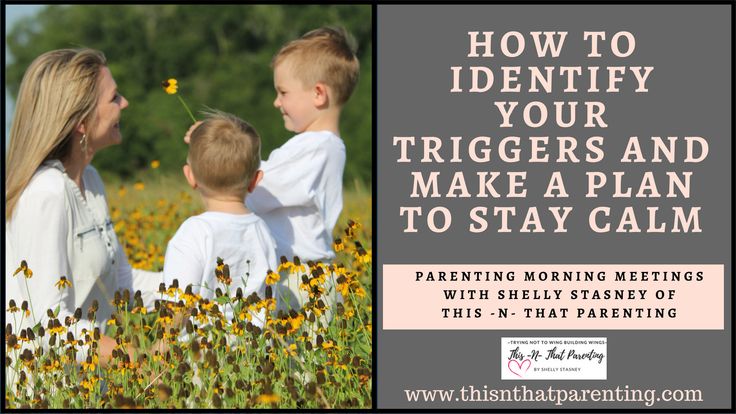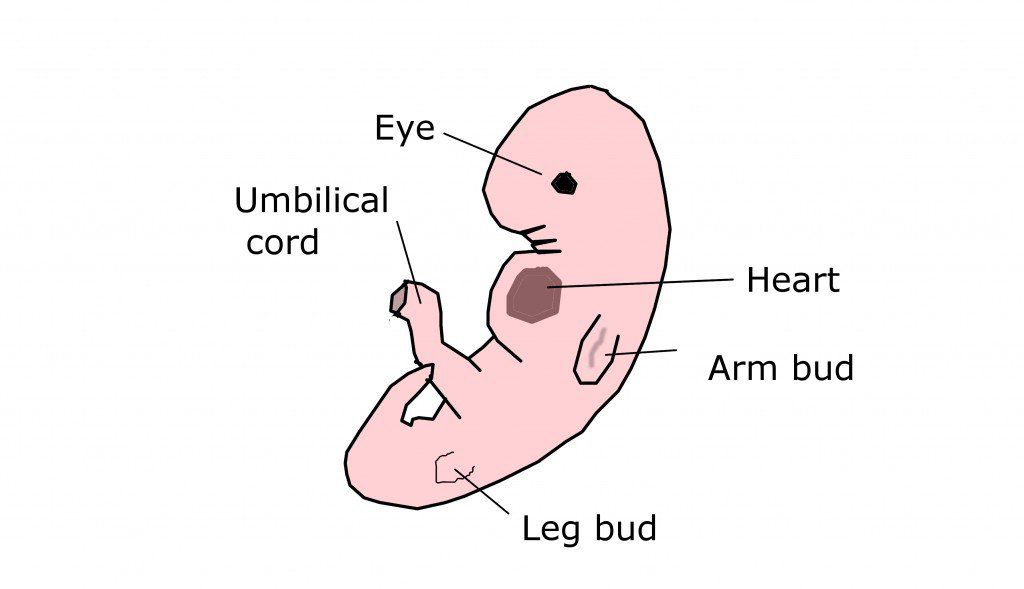How to emotionally connect with your child
Those close moments that make our hearts melt are what makes parenting worth all the sacrifices.
"I can't believe how things with my daughter have turned around, since I started focusing on connection." - Zoe
We all crave those close moments with our children that make our hearts melt. Connection is as essential to us parents as it is to our children, because that's what makes parenting worth all the sacrifices.
That connection is also the only reason children willingly follow our rules. Kids who feel strongly connected to their parents WANT to cooperate, if they can. They'll still act like kids, which means their emotions will sometimes overwhelm their still-growing prefrontal cortex. But when they trust us to understand, to be on their side, they're motivated to follow our lead when they can.
Researchers remind us that we need five positive interactions to every negative interaction to keep any relationship healthy. And since we spend so much time guiding -- aka correcting, reminding, scolding, criticizing, nagging, and yelling -- it's important to make sure we spend five times as much time in positive connection.
But we're only human. There are days when all we can do is meet our children's most basic needs. Some days it's nothing short of heroic simply to feed them, bathe them, keep an encouraging tone, and get them to sleep at a reasonable hour -- so we can do it all over again tomorrow!
So given that parenting is the toughest job on earth -- and we often do it in our spare time, after being separated all day -- the only way to keep a strong bond with our children is to build in daily habits of connection. Here are twelve habits that don't add time to your day, but do add connection. Simple, but incredibly powerful, these habits heal the disconnections of daily life. You'll find that using them daily changes everything.
1. Aim for 12 hugs (or physical connections) every day.
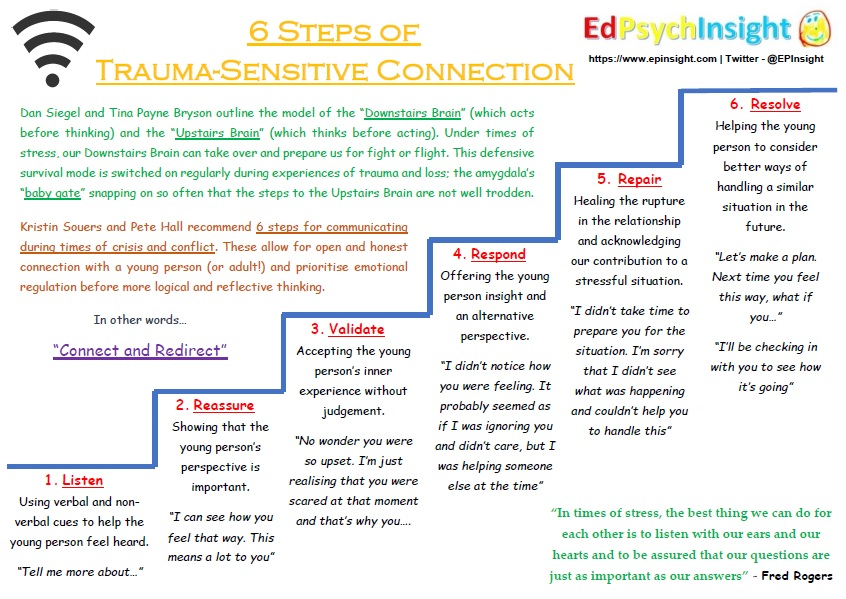
As family therapist Virginia Satir famously said, "We need 4 hugs a day for survival. We need 8 hugs a day for maintenance. We need 12 hugs a day for growth."
Snuggle your child first thing in the morning for a few minutes, and last thing at night. Hug when you say goodbye, when you're re-united, and often in between. Tousle hair, pat backs, rub shoulders. Make eye contact and smile, which is a different kind of touch. If your tween or teen rebuffs your advances when she first walks in the door, realize that with older kids you have to ease into the connection. Get her settled with a cool drink, and chat as you give a foot rub. (Seem like going above and beyond? It's a foolproof way to hear what happened in her life today. You'll find yourself glad, many times, if you prioritize that.)
2. Play.
Laughter and rough-housing keep you connected with your child by stimulating endorphins and oxytocin in both of you. Making laughter a daily habit also gives your child a chance to laugh out the anxieties and upsets that otherwise make him feel disconnected -- and more likely to act out. And play helps kids want to cooperate. Which is likely to work better?
And play helps kids want to cooperate. Which is likely to work better?
"Come eat your breakfast right now!"
or
"Little Gorilla, it's time for breakfast -- Look, you have bugs and bananas on your oatmeal!"
3. Turn off technology when you interact with your child.
Really. Your child will remember for the rest of her life that she was important enough to her parents that they turned off their phone to listen to her. Even turning off music in the car can be a powerful invitation to connect, because the lack of eye contact in a car takes the pressure off, so kids (and adults) are more likely to open up and share.
4. Connect before transitions.
Kids have a hard time transitioning from one thing to another. They need us to "co-regulate" them through those moments when they really don't want to give up what they're doing to move onto something we want them to do.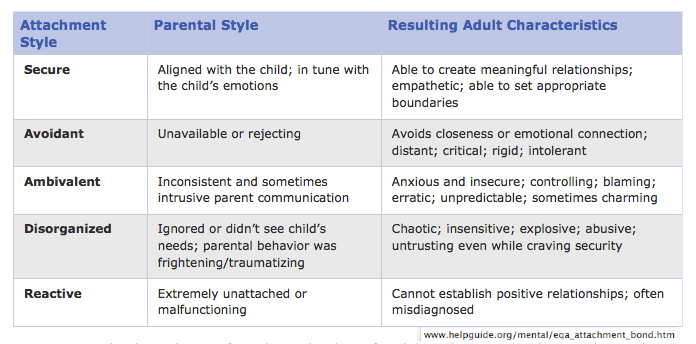 If you look him in the eye, use his name, connect with him, and then get him giggling, you'll give him a bridge to manage himself through a tough transition.
If you look him in the eye, use his name, connect with him, and then get him giggling, you'll give him a bridge to manage himself through a tough transition.
5. Make time for one on one time.
Do whatever you need to do to schedule 15 minutes with each child, separately, every day. Alternate doing what your child wants and doing what you want during that time. On her days, just pour your love into her while you follow her lead. On your days resist the urge to structure the time with activities. Instead, try any physical activity or game that gets your child laughing. (For game ideas, click here.)
6. Welcome emotion.
Sure, it's inconvenient that kids have such big emotions. But your child needs to express those emotions to you, or they'll drive his behavior. Besides, this is an opportunity to help your child heal those upsets, which will bring you closer. So summon up all your compassion, don't let your child's anger trigger you, and welcome the tears and fears that always hide behind the anger. Remember that you're the one your child trusts enough to cry with, and breathe your way through it. Just acknowledge all those feelings and offer understanding of the pain. That creates safety, so he can move through those emotions and back into connection, Afterwards, he'll feel more relaxed, cooperative, and closer to you. Yes, most kids start by being angry, so you have to stay calm and patient in the face of their anger if you want the more vulnerable feelings to surface. This can be really, really hard. Regulating our own emotions in the face of our child's anger is one of the hardest parts of parenting. But that doesn't mean we're excused from giving it our best shot.
Remember that you're the one your child trusts enough to cry with, and breathe your way through it. Just acknowledge all those feelings and offer understanding of the pain. That creates safety, so he can move through those emotions and back into connection, Afterwards, he'll feel more relaxed, cooperative, and closer to you. Yes, most kids start by being angry, so you have to stay calm and patient in the face of their anger if you want the more vulnerable feelings to surface. This can be really, really hard. Regulating our own emotions in the face of our child's anger is one of the hardest parts of parenting. But that doesn't mean we're excused from giving it our best shot.
7. Listen, and Empathize.
Connection starts with listening. Bite your tongue if you need to, except to say
"Wow!.... I see.... Really?... How was that for you?... Tell me more..."
The habit of seeing things from your child's perspective will ensure that you treat them with respect and look for win/win solutions. It will help you see the reasons for behavior that would otherwise drive you crazy. And it will help you regulate your own emotions so when your buttons get pushed and you find yourself in "fight or flight," your child doesn't look so much like the enemy.
It will help you see the reasons for behavior that would otherwise drive you crazy. And it will help you regulate your own emotions so when your buttons get pushed and you find yourself in "fight or flight," your child doesn't look so much like the enemy.
8. Slow down and savor the moment.
Instead of rushing your child through the schedule so you can spend a few minutes with them before bed, use every interaction all day long as an opportunity to connect. Slow down and share the moment with your child: let him smell the strawberries before you put them in the smoothie. When you're helping him wash his hands, put yours in the running water with his, and share the rush of the water. Smell his hair. Listen to his laughter. Look him in the eyes and meet him heart to open heart, sharing that big love. Connect in the magnificence of the present moment. Which is really the only way we can connect. (For most parents, this is also the secret to being able to tolerate playing that same game yet again.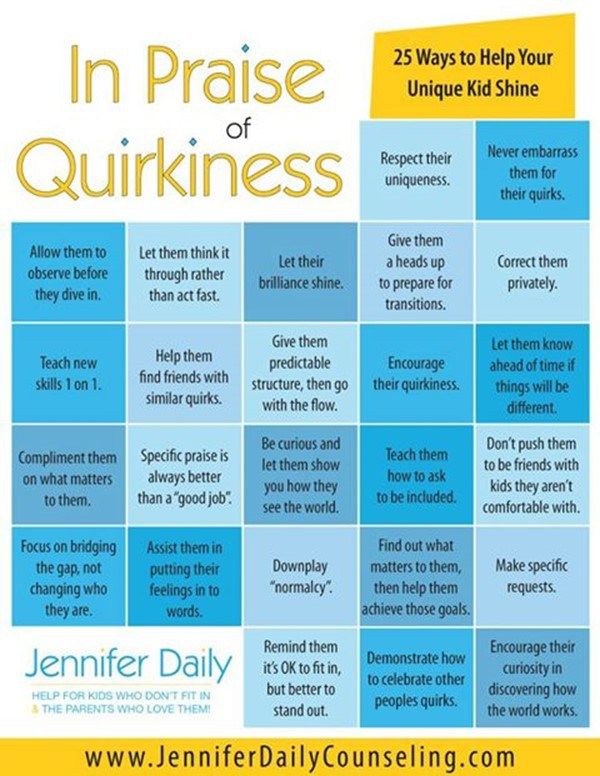 )
)
9. Bedtime snuggle and chat.
Set your child's bedtime a wee bit earlier with the assumption that you'll spend some time visiting and snuggling in the dark. Those companionable, safe moments of connection invite whatever your child is currently grappling with to the surface, whether it's something that happened at school, the way you snapped at her this morning, or her worries about tomorrow's field trip. Do you have to resolve her problem right then? No. Just listen. Acknowledge feelings. Reassure your child that you hear her concern, and that together you'll solve it, tomorrow. The next day, be sure to follow up. You'll be amazed how your relationship with your child deepens. And don't give this habit up as your child gets older. Late at night is often the only time teens will open up.
10. Show up.
Most of us go through life half-present. But your child has only about 900 weeks of childhood with you before they leave your home. They'll be gone before you know it.
Try this as a practice: When you're interacting with your child, show up 100%. Just be right here, right now, and let everything else go. You won't be able pull this off all the time. But if you make it a habit several times a day, you'll find yourself shifting into presence more and more often.
And you'll find a lot more of those moments that make your heart melt.
Maintain An Emotional Connection With Your Child Like This
By Larissa Marulli
The emotional connection we have with our children could be one of the most important relationships we have in our lives.
Via PexelsThe emotional connection we have with our children could be one of the most important relationships we have in our lives. It needs to be nurtured and evolve as our kids grow. Parents and children have such a special bond that really develops with a lot of physical contact in the baby and early years. That doesn't always continue as our kids age, and parents and adult children often find themselves unable to connect with each other emotionally. This is especially true as kids approach their tween and then teen years.Raising your child to have a healthy emotional connection with you will take some work. As the mom, your initiation of a more meaningful relationship with your child will develop a stronger emotional connection between the two of you. Here are 10 ways to maintain a healthy emotional relationship with your child.
That doesn't always continue as our kids age, and parents and adult children often find themselves unable to connect with each other emotionally. This is especially true as kids approach their tween and then teen years.Raising your child to have a healthy emotional connection with you will take some work. As the mom, your initiation of a more meaningful relationship with your child will develop a stronger emotional connection between the two of you. Here are 10 ways to maintain a healthy emotional relationship with your child.
10/10 Give Them A Lot Of Hugs
Photo by Vlada Karpovich from PexelsPhysical connection is very important for both you and your child. Kids thrive on touch. It makes them feel safe and secure. Hugging and consistent physical connections are essential for a positive emotional relationship. Healthy Place really emphasizes that children are generally touch-starved because it isn't a part of parenting we really focus on especially as our kids get older.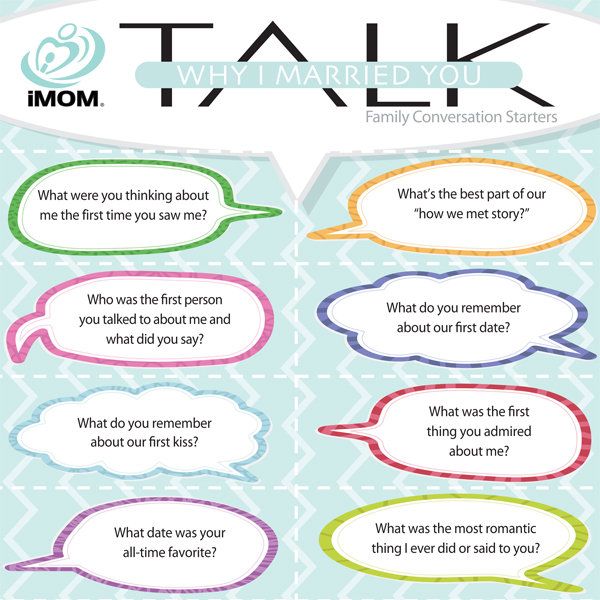 Hugs, hair tousles, cuddling, and kisses should be a regular part of your parenting routine every single day.
Hugs, hair tousles, cuddling, and kisses should be a regular part of your parenting routine every single day.
9/10 Take The Time To Listen
When your kid takes the time to talk to you, take the time and listen to what they need to say. Within reason of course, but when your child, tween, or teen is taking the time to tell you a story or saying something about themselves, listen. Give your child respect and attention when they choose to spend time with you talking. Put down your phone and pay attention. Communication is needed for healthy emotional relationships and so is listening.
8/10 Love Your Child For Who They Are
via Pexels/Kindel MediaA child who feels emotionally secure and close to their parents is one who knows they're loved. Sometimes moms need to adjust their expectations and love their children for who they are, but not who they wanted them to be. Tell your child that you love who they are and that you'll always be there for them. Then do just that.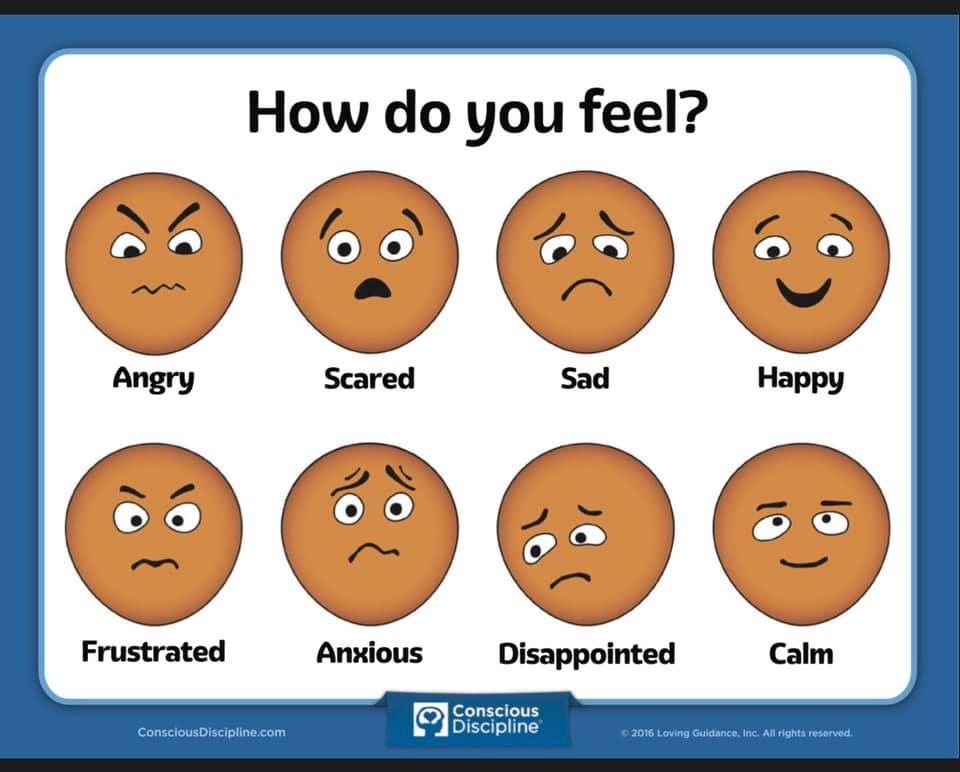
7/10 Ask About Their Days
Via PexelsOnce kids head to school, they start having a life outside the home, and it's natural to want to know what's going on. Asking about their day makes your child feel important. Kids love talking and they love talking about themselves. Asking more open-ended questions should get you a better answer. It may take some time but hopefully, your child begins to share and looks forward to sharing their school day and their life with you.
RELATED: How To Connect With Your Teenagers Who Don't Want To Be Around You
6/10 Share Appropriate Details About Your Life
via Pexels/Olha RuskykhDeveloping an emotional connection with your child involves sharing, and that means both of you. Whether prompted or unprompted, tell your kids about your day around the time you ask about theirs. Share with them what you ate for lunch, any work you did, and if maybe you saw something funny. Sharing small details like this with your kids will make them feel important that you're telling them what you did for the day.
5/10 Appreciate The Simple Times
Via PexelsFor moms, most days can look the same. Stay at home moms and working moms both have times when they feel like they're living the same day over and over. Days can look similar, but it's these hectic mornings and active weekends that parents of adult children miss. The constantly messy home or the barrage of questions from your kids can seem tedious and tiresome, but these moments can be more appreciated for how they won't last forever and one day, so soon your kids will be grown up.
4/10 Take Your Time Before Reacting
Via PexelsWhenever a situation arises at home, don't be reactive to any news and act loudly. Take some time to react and do so carefully. Staying calm will keep your kid coming to you with their emotions. It will help your emotional connection grow if your child trusts you and feels comfortable.
3/10 Have One on One Time
via Pexels/Barbara OlsenIf you have more than one child, moms should really try to have regular one-on-one time with their children separately every day.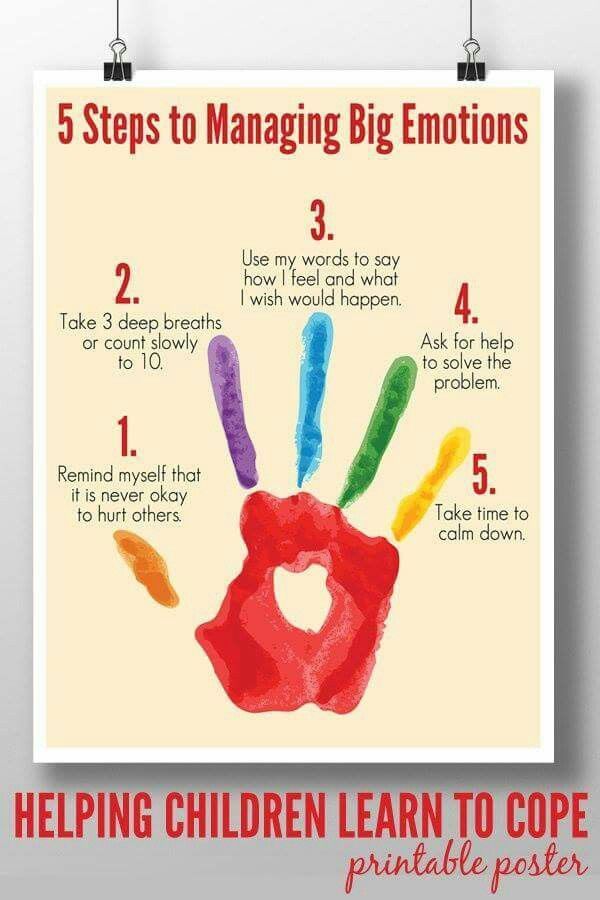 Fifteen minutes a day is enough to have some time alone with each child. Do some sort of activity or play a game, or just talk and practice on building this emotional connection.
Fifteen minutes a day is enough to have some time alone with each child. Do some sort of activity or play a game, or just talk and practice on building this emotional connection.
2/10 Encourage Them To Feel Their Emotions
Any time a child is told to suppress their feelings or made to feel ashamed about their emotions, they'll want to hide them, making them emotionally unavailable. Or unwilling to share at all. Aha! Parenting wants moms to encourage these strong emotions like tantrums or tears even if they are inconvenient and even embarrassing. They point out that mothers are their children's safe spaces, and we need to muster all of our patience to not match their emotions but to calm theirs.
1/10 Nourish Your Emotions As Well
Via UnsplashYou can't have a healthy emotional relationship with anyone if your own emotions and feelings aren't under control. Focus on yourself and work through any unresolved feelings you may have. Any strong emotions we're dealing with can affect the way we parent, so it's important to maintain your own mental well-being
Source: Aha! Parenting, Healthy Place, Motherly
How to strengthen emotional connection with children
home
Parents
How to raise a child?
How to Strengthen an Emotional Bond with Children
- Tags:
- Expert advice
- 1-3 years
- 3-7 years
- 7-12 years old nine0014 children in the family
- family relationships
An emotional connection between mother and baby appears even before birth: the child reads the emotional state of the mother and adapts to it.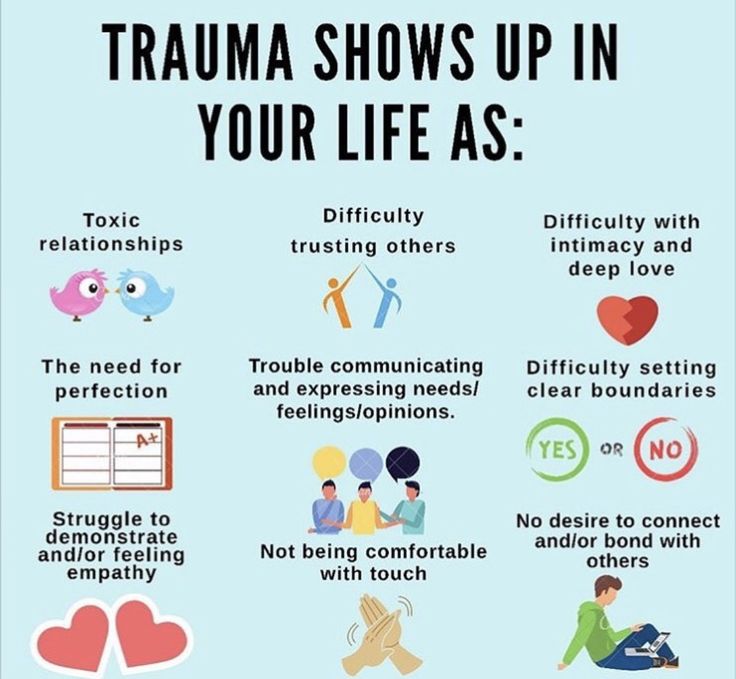 Breastfeeding strengthens the mutual connection, therefore, if there are no contraindications, you should not refuse it.
Breastfeeding strengthens the mutual connection, therefore, if there are no contraindications, you should not refuse it.
If a father takes an active part in the life of a child from the first days, then an emotional connection with him is formed immediately and remains for many years. nine0003
A child feels safe when parents are attuned to him, that is, they understand his needs and problems.
As the child grows older, the emotional connection seems to be “stretched”, becomes less strong, and sometimes is lost, which leads to alienation between the closest people.
For any child, tactile contact is very important: hug him as often as possible, hold his hand, pat him on the shoulder as a token of approval, kiss him and do not be shy about manifestations of tenderness and love. nine0003
When putting your baby to bed, read him a bedtime story and sing lullabies. The child must fall asleep in an atmosphere of safety and emotional calm, and only his parents can create such conditions. Before going to bed, you can discuss the past day, share your impressions and plans for tomorrow.
Before going to bed, you can discuss the past day, share your impressions and plans for tomorrow.
Play with your child more often. Joint play with parents is both a resource for development and strengthening of emotional connection with the child. Let the kid play according to the rules that he prefers, do not teach how to do it right, because only in childhood there is an opportunity to remake these rules for your own comfort. During the game, play, and do not act like a serious adult. Let yourself be a child too: ride down the hill with your baby, sculpt Easter cakes, honestly hide while playing hide and seek. nine0003
Be sure to discuss feelings and emotions with your child, help him learn reflection - the ability to be aware of his own experiences. Share your similar emotional experience, tell what you experienced in this or that situation. Feeling-talking is very important in adolescence, but even with younger children, discussing emotions is essential.
Be within reach of your children. Don't brush your child off by saying, "You'll tell me later. Can't you see I'm watching a movie? Of course, situations are different, but try to ensure that the child has the opportunity to contact you at any time, talk, share something, or receive an important recommendation for him. So you will not only strengthen the bond between you and your child, but in the future you will receive a response - your child will always be available to you. nine0003
Don't brush your child off by saying, "You'll tell me later. Can't you see I'm watching a movie? Of course, situations are different, but try to ensure that the child has the opportunity to contact you at any time, talk, share something, or receive an important recommendation for him. So you will not only strengthen the bond between you and your child, but in the future you will receive a response - your child will always be available to you. nine0003
Give your child the attention they need. Parents often complain at consultations that their children require too much attention. You need to figure out what is behind this need - an attempt to get parental attention, a way to increase your self-esteem or get praise? The concept of attention among parents and children sometimes does not coincide: many parents “pay off” their children with expensive gifts or high-quality educational courses, but such behavior will not help strengthen the emotional connection with the child, but, on the contrary, destroys it.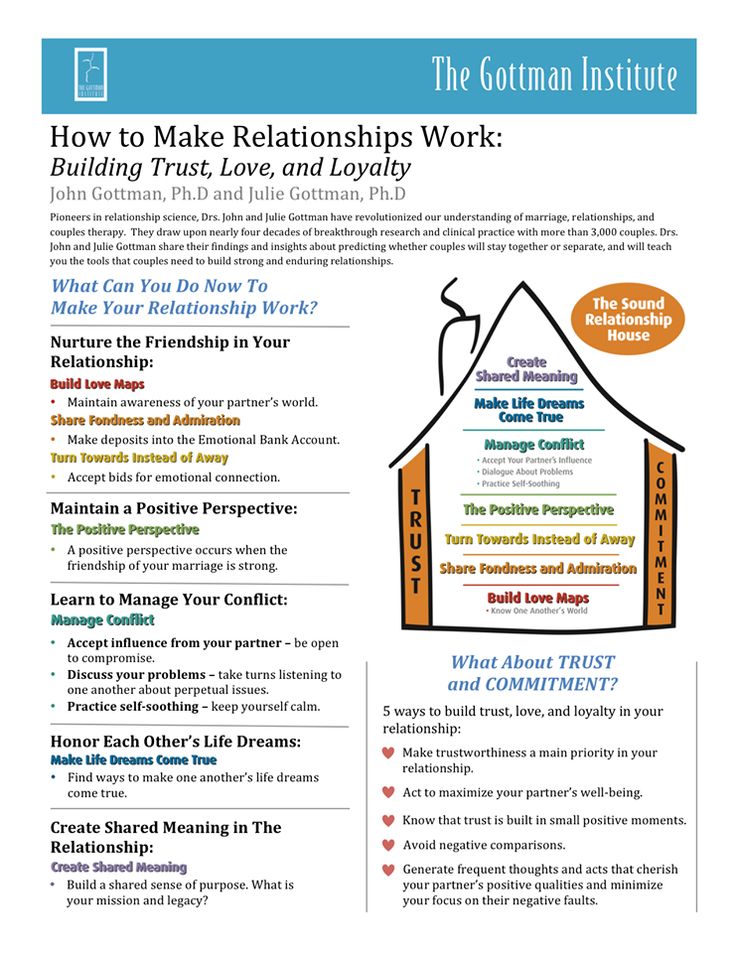 nine0043
nine0043
Read also
Parenting and emotions: an important connection
"Special time" for a child
Be attentive to your child's feelings, accept them and do not try to correct them, in any case do not diminish their significance. How often do I hear a parent: “Afraid? Do not invent, there is nothing to be afraid of! But such depreciation directly leads to psychological trauma and serious consequences in the future. If a parent considers the feelings of his child to be insignificant, then soon the baby's self-esteem will decrease, shyness, isolation, and possibly aggression as a defensive response to parental distrust will become the leading character trait. Do you want this for your child? I hope no. nine0003
Speaking of trust, it is important to mention that you need to trust your child implicitly. Of course, no one has yet canceled critical analysis, but without trust, there can be no talk of any emotional connection between a parent and a child.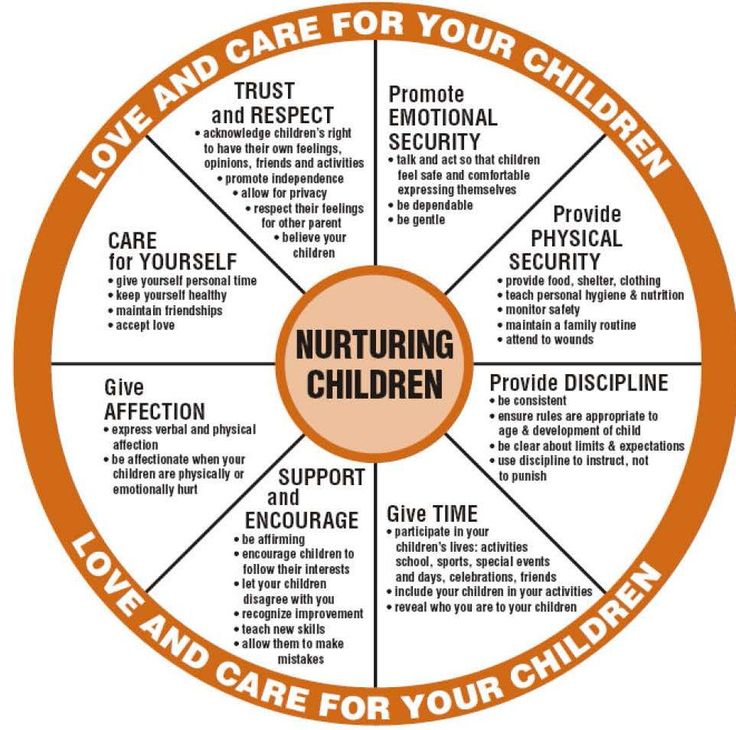 If the teacher said that your child hit another kid, do not rush to scold the fighters. First, listen to his position and be on his side if the stories of what happened on both sides diverge. So your child will understand that you trust him and believe. But be sure to say this question: “I trust you, so I think that you are telling the truth. If it turns out that you lied to me, I will be very upset and in the future I will no longer be able to trust like that. nine0043
If the teacher said that your child hit another kid, do not rush to scold the fighters. First, listen to his position and be on his side if the stories of what happened on both sides diverge. So your child will understand that you trust him and believe. But be sure to say this question: “I trust you, so I think that you are telling the truth. If it turns out that you lied to me, I will be very upset and in the future I will no longer be able to trust like that. nine0043
One of the most important rules is to put your gadgets away. A child cannot feel an emotional connection with his mother if there is always a phone or tablet screen between them. Get distracted, forget about the Internet, devote your time to a child, not a child with a tablet.
Laughter unites people, and a sense of humor helps to relax and feel freer. Laugh with your child at jokes and anecdotes, do not be afraid to seem ridiculous or ridiculous, because the main thing is sincerity. It is these little things that are important steps on the way to mutual trust, understanding and emotional connection with each other.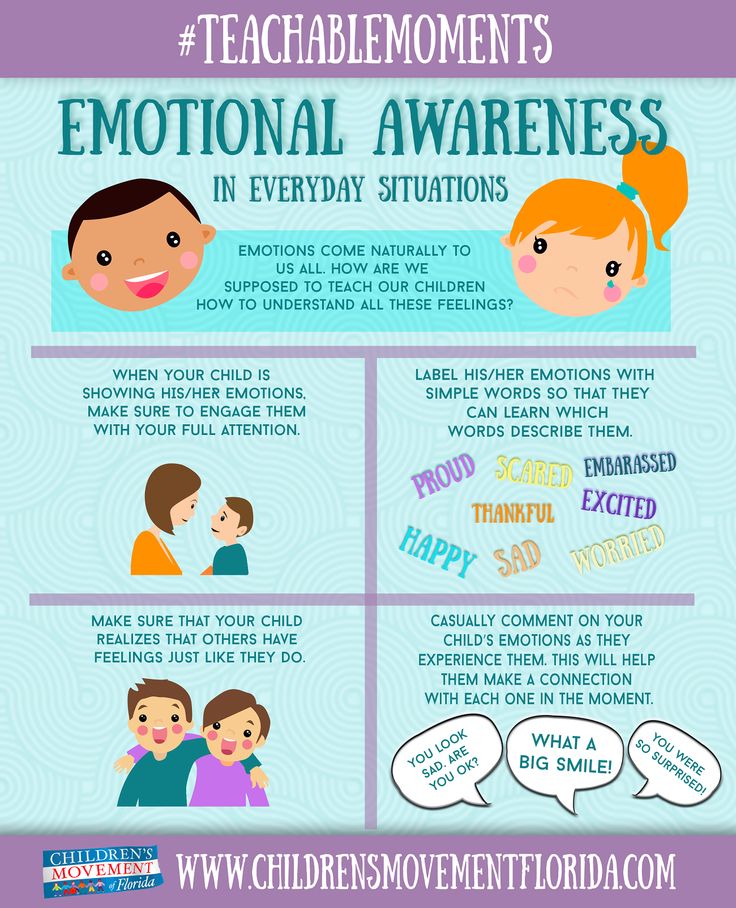 nine0043
nine0043
I don't think it's worth saying that physical and moral violence applied by some parents to their children will cross out all steps towards each other. After that, it will be extremely difficult to earn the respect and trust of the child.
Love your children as they are, do not be afraid to trust them, behave naturally and be sincere, and all this will return to you in the form of love and gratitude from your children.
Ekaterina Safonova
What do I know about childhood? nine0081
Knowledge about the importance of childhood in human development helps parents "not to lose their heads" in those moments when other educational resources have already been used. After passing the test, you will find out if you have enough knowledge to properly raise a child.
Take the test
More on the topic
What kind of well-behaved child is he?
Dear parents!
Algorithm for doing homework for younger students
How to strengthen an emotional connection with children - Child development
The emotional connection between parents and their child is the basis of their healthy relationships.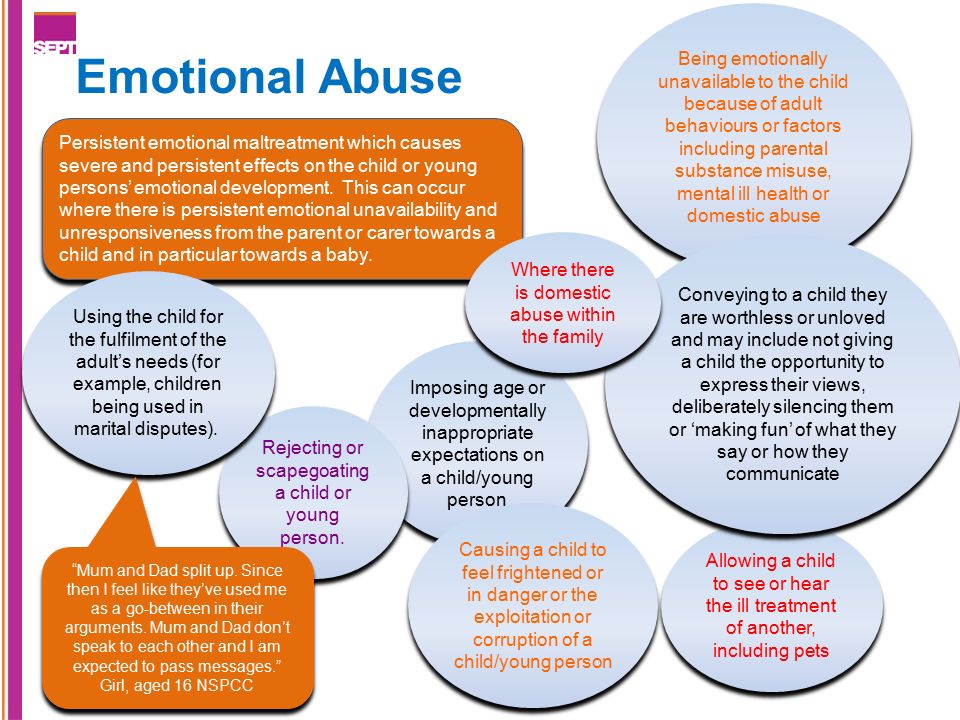 When you have a strong emotional connection with your children, they voluntarily follow the rules. One way to strengthen this bond with your child is to teach them how to interact positively in everyday life. To do this, follow the recommendations:
When you have a strong emotional connection with your children, they voluntarily follow the rules. One way to strengthen this bond with your child is to teach them how to interact positively in everyday life. To do this, follow the recommendations:
1. Hug your child every day. Children feel safe when they feel physical contact with their parents. The experience of contact with parents at an early age affects self-esteem, life satisfaction and social competence in the future. It also has a positive effect on the physical and mental development of the child. nine0003
Hug your child in the morning, at bedtime and as often as possible during the day. Pat him on the shoulder and maintain eye contact to show you care.
Older children may not like physical touch or may feel embarrassed when you hug them in front of their peers. Don't insist. Be flexible and let your child know that cuddling as a sign of love is good.
2. Play with your child. During the game, return to childhood. So you will better find a common language with your child. Assemble a constructor with your child, play imagination games, computer or sports games with him. nine0003
So you will better find a common language with your child. Assemble a constructor with your child, play imagination games, computer or sports games with him. nine0003
3. Find something to laugh about with your child. Parenting doesn't always have to be serious. Funny moments with your child create wonderful memories and allow both you and your child to deal with anxiety.
4. Take time to talk one-on-one with your child. In your work schedule, set aside time every day to communicate with your child. Let your child talk about his needs, show your love, play with him and do things together. nine0003
5. Live in the moment. How often are you here and now, not thinking about the future and not remembering the past? Do not overload yourself with many daily activities. At least sometimes take a break from them and enjoy the present moment. This is a great way to awaken your senses.
6. Comb your child's hair. These small gestures of attention are good for strengthening your bond with him.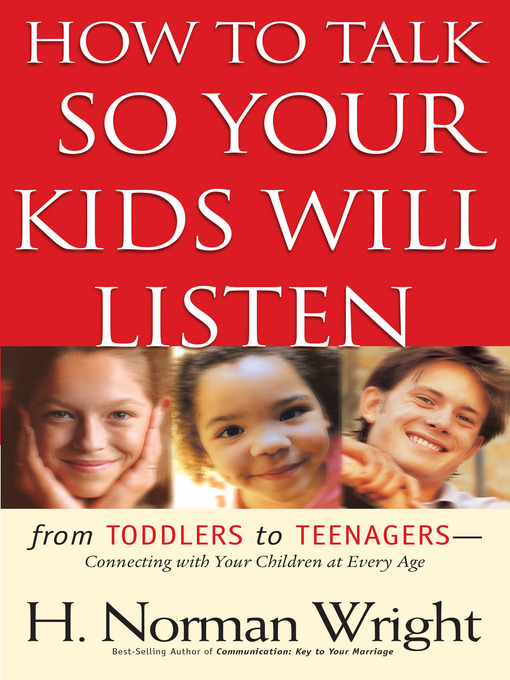 Teenagers may not like it, but preschoolers usually love this activity.
Teenagers may not like it, but preschoolers usually love this activity.
7. Do not use electronic devices while interacting with your child. Make sure your mobile phone is turned off or in silent mode and other devices are out of sight. This will let your child know that you value the time you spend with him and help strengthen the emotional bond between you. nine0003
8. Talk to your child before going to bed and hug him. The child should go to bed in a calm state, and not under the coercion of the parents. The child at this moment should feel safe. If something is bothering him, he should be able to share his feelings with you. Listen to the child and accept his feelings. Reassure him and let him know that he is safe with you.
By adhering to these recommendations, you will lay the foundation for a healthy relationship with your child and further strengthen your emotional connection with him. nine0003
Principles of healthy relationships between parents and children
Psychologists say that good relationships with parents are important for the healthy development of children. For such a relationship to be of high quality, parents must show responsiveness and love, as well as earn the trust of the child. Let's take a look at some tips on how to strengthen your relationship with your child.
For such a relationship to be of high quality, parents must show responsiveness and love, as well as earn the trust of the child. Let's take a look at some tips on how to strengthen your relationship with your child.
1. Start as early as possible. A child's bond with his mother is formed when he is still in the womb, and with his father - from the moment of birth. Psychological studies show that fathers who establish an emotional connection with a child from the first days of a child's life keep it for many years. nine0003
2. Invest time and effort into your relationship with your child. The more time you spend with your child, the stronger your bond will be. Of course, all parents love their children, but dedicated efforts and time are needed to show them this love. Teenagers need personal space, and young children need parental guidance and interaction.
3. The relationship with the child should be a priority. Show your child that he is your number one priority. Give him as much time as you can, and don't just fit him into your schedule. nine0003
nine0003
4. Always be available to your child. Respond to his physical and emotional needs. It is extremely important for parents to look at different situations from the child's point of view, to pay attention to him and show his love.
5. Empathize with the child. Help your child express their emotions. This may not be easy if you are raising your first child, but practice will help you develop this skill. By looking at the situation from the child's point of view, you can understand the reasons for his behavior. nine0003
6. Communicate. Communication with the child should be honest, warm and friendly. Make clear to your child what you expect from him, and also let him know what he can expect from you. Teach your child the rules and the consequences if they are broken. However, do not let your child manipulate you. Respond to such attempts firmly and calmly.
7. Be interested in your child's studies, activities, and social circle. Parents who are actively involved in a child's life form a strong relationship with him. Be interested in what is happening in the child's life, what is his academic progress, get to know his friends. Communicate regularly with your child's school teachers. nine0003
Be interested in what is happening in the child's life, what is his academic progress, get to know his friends. Communicate regularly with your child's school teachers. nine0003
8. Use active listening in your communication. When you just listen to the child casually and nod from time to time, he concludes that you are not interested in this conversation. When a child wants to talk to you, put everything aside and listen to him. Ask questions or clarify what he said. Remember to maintain eye contact with your child while talking.
9. Appreciate the time you spend with your family. Have family dinners and discuss what happened during the day. Start a tradition of going to the movies, going to events, or going out together. nine0003
10. Trust your child and earn his trust yourself. Trust is the foundation of all relationships. The child must know that in any situation he can rely on you and at the same time feel safe. Earn your child's trust: Keep your promises, keep secrets, and make your child feel confident. However, this does not mean that you need to blindly believe all the words of the child. Trust, but verify.
However, this does not mean that you need to blindly believe all the words of the child. Trust, but verify.
11. Encourage your child. Children need constant support and motivation. So they become more confident in themselves and gain self-respect. If you constantly criticize or correct your child, he will feel that his opinions or actions are of no value to you. nine0003
12. Respect your child. Treat the child as a separate person, acknowledge his opinions and beliefs. To a certain extent, you are responsible for the formation of beliefs in your child, but many other factors also influence this. Respect your child's opinion and he will respect yours.
The love and care you show for your child builds a strong relationship with him. However, this may be hindered by some of his behavioral problems.
Behavior problems that destroy relationships
The emotional connection between parents and their child at an early age becomes the basis for their strong relationship in the future. If at a young age there are problems in the relationship with the child, this can negatively affect his personality. Consider the most common problems to avoid:
If at a young age there are problems in the relationship with the child, this can negatively affect his personality. Consider the most common problems to avoid:
1. Physical and emotional abuse. Some parents (usually those who are addicted to alcohol or drugs) are physically abusive towards the child. Others may be emotionally abusive when they overly criticize, humiliate or yell at a child. This also harms him. nine0003
A person who was abused in childhood becomes prone to violent behavior towards his children and parents in adult life, thus creating a vicious circle.
2. Disrespect. Respect is a mutual process and must be earned. Parents should support the child materially, emotionally, socially and spiritually. If at least one of these needs is not satisfied, the child loses respect for his parents. He becomes rebellious, breaks rules, and relies more on other people for his needs. nine0003
In addition, you should also show respect for your child when you communicate and interact with him.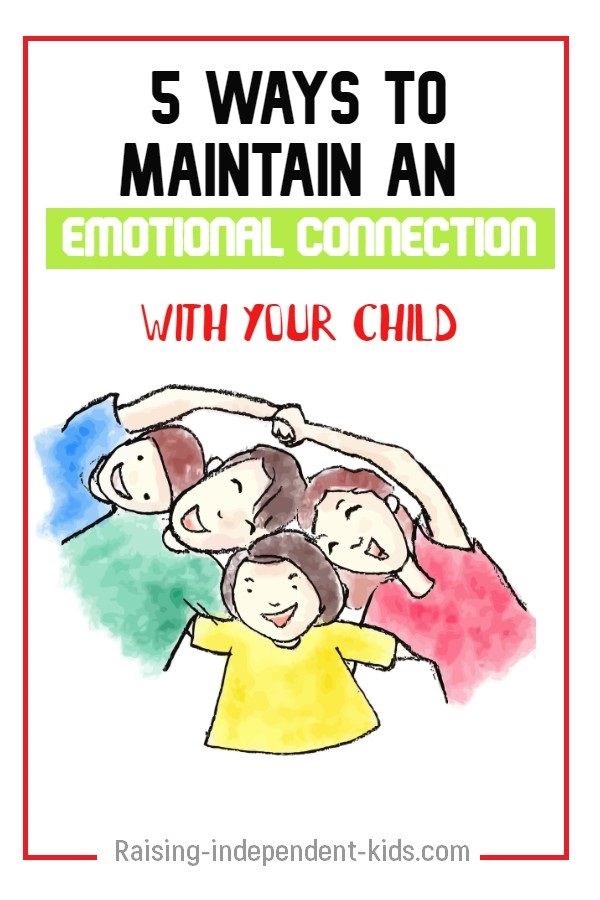
3. Insufficient communication with the child. Insufficient communication or its complete absence upsets both the child and the parents. Usually this is caused by the fact that the parents believe that the child does not listen to them, and the child - that the parents do not understand him. Such beliefs destroy the emotional bond between them and cause feelings of anger and sadness.
4. Codependency. Sometimes the child's relationship with his parents is built on codependency: for example, a child is forced to take care of his parents, especially when one of them is seriously ill or has a disability. Thus, the child takes responsibility for the emotional state of the parents, solving family problems, and even for doing household chores. In such cases, children may put the needs of their parents first. In the future, they often become dependent in relationships with other people. nine0003
5. Distrust. If a child repeatedly makes mistakes or exhibits bad behavior, parents lose confidence in him.